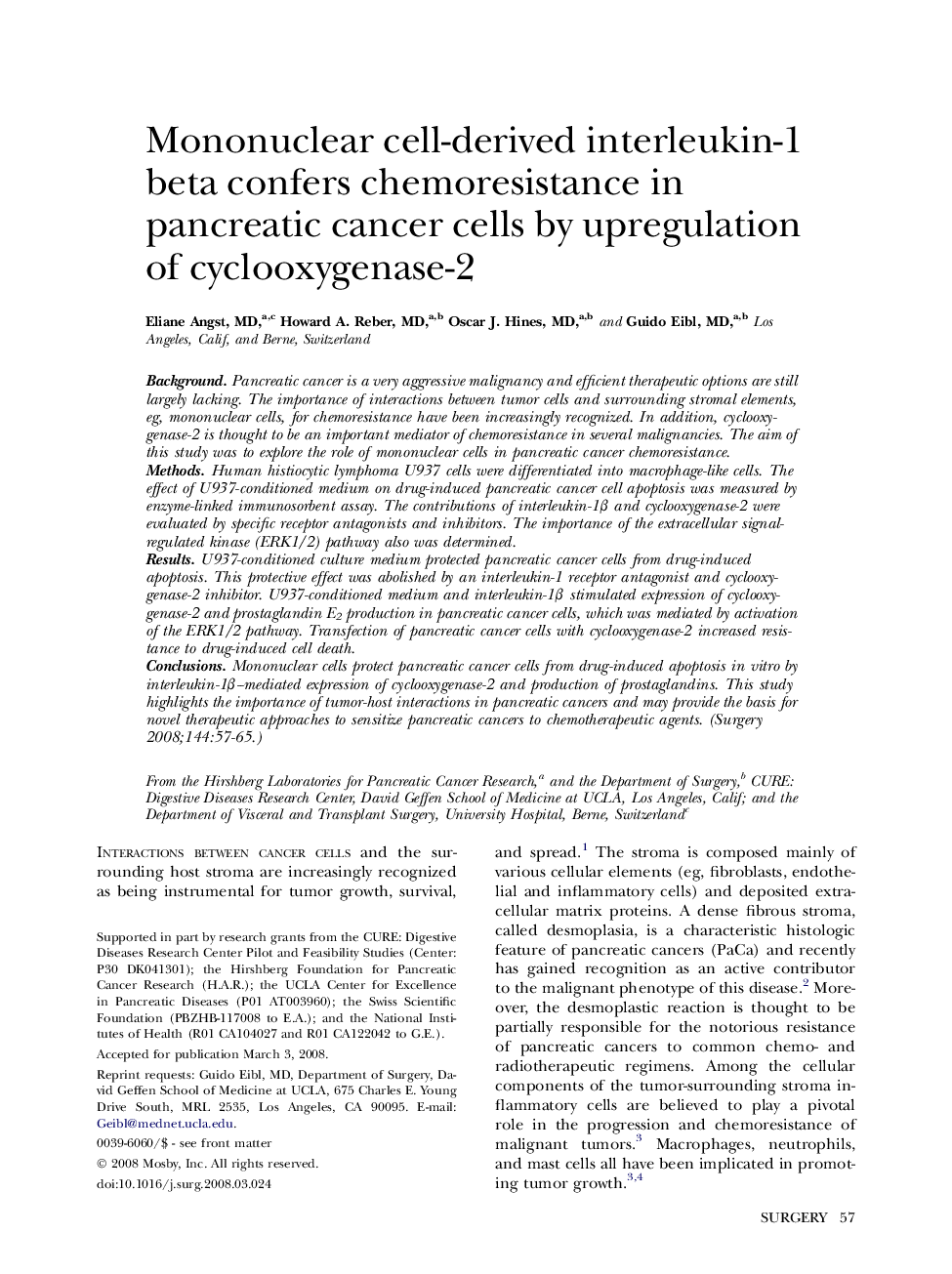| Article ID | Journal | Published Year | Pages | File Type |
|---|---|---|---|---|
| 4309760 | Surgery | 2008 | 9 Pages |
BackgroundPancreatic cancer is a very aggressive malignancy and efficient therapeutic options are still largely lacking. The importance of interactions between tumor cells and surrounding stromal elements, eg, mononuclear cells, for chemoresistance have been increasingly recognized. In addition, cyclooxygenase-2 is thought to be an important mediator of chemoresistance in several malignancies. The aim of this study was to explore the role of mononuclear cells in pancreatic cancer chemoresistance.MethodsHuman histiocytic lymphoma U937 cells were differentiated into macrophage-like cells. The effect of U937-conditioned medium on drug-induced pancreatic cancer cell apoptosis was measured by enzyme-linked immunosorbent assay. The contributions of interleukin-1β and cyclooxygenase-2 were evaluated by specific receptor antagonists and inhibitors. The importance of the extracellular signal-regulated kinase (ERK1/2) pathway also was determined.ResultsU937-conditioned culture medium protected pancreatic cancer cells from drug-induced apoptosis. This protective effect was abolished by an interleukin-1 receptor antagonist and cyclooxygenase-2 inhibitor. U937-conditioned medium and interleukin-1β stimulated expression of cyclooxygenase-2 and prostaglandin E2 production in pancreatic cancer cells, which was mediated by activation of the ERK1/2 pathway. Transfection of pancreatic cancer cells with cyclooxygenase-2 increased resistance to drug-induced cell death.ConclusionsMononuclear cells protect pancreatic cancer cells from drug-induced apoptosis in vitro by interleukin-1β–mediated expression of cyclooxygenase-2 and production of prostaglandins. This study highlights the importance of tumor-host interactions in pancreatic cancers and may provide the basis for novel therapeutic approaches to sensitize pancreatic cancers to chemotherapeutic agents.
